Great ideas can be polarizing.
Think about it: when Airbnb first launched, the idea of welcoming strangers into your home seemed…well, insane.
And Uber? Letting someone you’ve never met drive you around in their car? No thanks! Yet, these ideas didn’t just work—they transformed entire industries.
The truth is, the most groundbreaking ideas often start with a chorus of skepticism.
SpaceX? “You want to launch rockets to Mars? Good luck with that.”
Waymo? “Self-driving cars? Sounds like science fiction.”
And yet, here we are.
Now, obviously, most of us aren’t building rockets or designing autonomous vehicles. But if you’ve ever had an idea—big or small—you’ve probably faced some hefty skepticism. A raised eyebrow from a friend, a skeptical head tilt from a family member, or a dismissive shrug from someone who just doesn’t get it.
It’s the unspoken question: “Who do you think you are?” “If its such a great idea, why didn’t someone else think of it?”
Starting something new is hard. It’s risky. And it’s messy. If you’ve listened to even a handful of How I Built This episodes, you know that every founder has faced moments of desperation, self-doubt, and the urge to quit. They’ve all had their share of doubters.
But here’s the thing: the doubters don’t get to decide what’s possible.
You do.
This week on the Advice Line, Joe Gebbia, co-founder of Airbnb, shared a simple but powerful formula he’s used to navigate the noise:
SW squared + WC = MO.
Translation?
Some Will, Some Won’t, Who Cares? Move On.
It’s a mantra that’s as liberating as it is challenging. Some people will love your idea. Some will hate it. And honestly? It doesn’t matter. What matters is that you keep going.
Yes, your idea might be polarizing. It might even feel impossible at times. But if it’s something you’re proud of, something that lights you up, then it’s worth pursuing.
Because the world doesn’t need more people who play it safe. It needs more people who are willing to take the leap—even when others don’t understand.
So, the next time someone gives you “the look,” remember Joe’s formula:
Some will, some won’t, who cares? Move on.
– Guy
On the Podcasts This Week!
Fanatics: Michael Rubin’s Relentless Drive
What do snow shoveling, ski shops, and sports merchandise have in common? For Michael Rubin, they’re all chapters in a remarkable entrepreneurial story that spans decades. From hustling as a kid in Philadelphia to running a $25 billion business, Michael’s journey is as relentless as it is inspiring.
Here’s a short list of everything Michael has accomplished in business:
At just 8 years old, Michael was shoveling snow and hiring neighborhood kids to scale.
By 12, he started tuning skis in his parents’ basement.
By 15, he owned five ski shops!
At 18 he grew a nine-figure operation
By his mid 20’s he founded GSI Commerce
And in 2011 –– after selling GSI to eBay for $2.4B –– he bought a small subsidiary called Fanatics.
Phew!! Michael has all the ingredients of an entrepreneur: relentless, passionate, excited. He loves business and entrepreneurship. He’s dedicated his entire life to it! Here’s the best part… Michael thinks he’s just getting started.
HIBT Advice Line: When to Pivot
This week on the Advice Line, Airbnb co-founder Joe Gebbia joins the show to guide three entrepreneurs through pivotal challenges in their businesses.
First up, Marina: Should I return to Amazon to scale my brand?
Marina is the founder of Lufi & Friends, a company creating singing board books to teach kids new languages. While her mission is personal and rooted in her family’s values, Marina is torn about whether to list her products on Amazon. Our advice? Do both! Use Amazon to grow the brand, while nurturing her audience locally.
Next, Ray: How do I fundraise for my Latino-forward craft beer brand?
Ray’s company, Norwalk Brewhouse, produces a Mexican-style blonde ale called Bidi Bidi Blon Blon, gaining traction in local markets. But scaling production requires funding—a challenge given limited access to loans. We encourage Ray to get creative: angel investing, crowdfunding, and anything in between!
Finally, Jael: How can I scale my sports apparel brand while staying true to my identity?
Jael is the founder of Gameday Social, a collegiate women’s sports apparel brand with licenses from 200+ universities. With rapid growth, Jael is worried about staying true to her original vision. We think she can leverage her success and find strategic partners to help her grow!
Joe reminds us of the transformative power of mentorship. Don’t hesitate to seek guidance early—mentors can help illuminate paths you might not see alone.
If you would like to be featured on an upcoming episode, call and leave a 1-minute message at 1-800-433-1298 or send a voice memo to hibt@id.wondery.com
Ice Cube: From NWA to Hollywood Icon
You might know Ice Cube as the face of gangsta rap, the comedic genius behind Friday, or the actor who brought intensity to films like Boyz n the Hood. But there’s so much more to his story—a journey rooted in authenticity, resilience, and an unrelenting drive to create.
Growing up in South Central Los Angeles, O’Shea Jackson, a.k.a. Ice Cube, saw both the struggles and vibrancy of his community. Writing became his escape, a way to process his environment and express truths that resonated deeply.
By 14, he was crafting rhymes, and soon after, he teamed up with Dr. Dre to form NWA. Their breakout album Straight Outta Compton sent shockwaves through the music world, offering unfiltered commentary on systemic issues. Songs like “F*ck tha Police” sparked backlash, but they also cemented NWA as a cultural force.
Today, Ice Cube is still creating across mediums. Whether launching the BIG3 basketball league or producing films that challenge societal norms, his work is defined by his authenticity and willingness to adapt.
Watch it on YouTube:
Finding Work with Purpose: Ken Coleman
It’s a deceptively simple question, but for Ken Coleman, it’s the starting point for unlocking career potential. In this episode, Ken shares how this single question helped him navigate a decade of odd jobs and uncertainty before he found his passion in broadcasting.
Ken is the author of The Proximity Principle and One Question, and his advice is rooted in the idea that meaningful work lies at the intersection of talent, passion, and mission. He encourages everyone to ask themselves: What am I good at? What do I love to do? And how can I use those skills to make an impact?
Drawing from his own experiences and the stories of others, Ken highlights the importance of relationships and connections. “Proximity is power,” he says, emphasizing that being around the right people in the right places can open doors you never imagined.
Whether you’re looking for a career change or searching for purpose in your work, Ken’s story is a reminder that the journey to meaningful work is rarely linear—but it’s always worth pursuing.
Science Podcasts for Kids!
Show & Tell!
This week on Wow in the World, Mindy kicks off her very first “Collection Club” meeting, and it’s a treasure trove of surprises! From Grandma G-Force’s questionable bone pile to Mindy’s assortment of fuzzy finds, the gang is ready to share their quirkiest collections.
But the real WOW begins when we uncover an astonishing discovery about Neanderthals: over 40,000 years ago, they collected marine fossils—not for survival, but for fun! Could our ancient relatives have had hobbies like us? Find out in the latest episode of Wow in the World!
All About Words!
This week on Two Whats?! And A Wow!, we dive into the wonderful world of WORDS! We uncover some mind-blowing facts about language—and it’s up to YOU to separate the WOWs from the WHATs!
Tune in to this week’s game show of linguistic laughs, surprising science, and wordy wonders to find out!
From the Archives!
Airbnb: Joe Gebbia
When Joe Gebbia struggled to pay rent in San Francisco, he came up with a scrappy solution: rent out air mattresses in his apartment to visitors. And what started as a way to make ends meet quickly became the foundation for Airbnb, a platform that transformed the travel industry.
In this episode, Joe shares how he and his co-founders turned their quirky idea into one of the largest hospitality companies in the world—without owning a single hotel room. From bootstrapping during the early days to navigating skepticism from investors, Joe’s journey is a masterclass in persistence and creative problem-solving.
Title Nine: Missy Park
In the late 1980s, Missy Park saw a gap in the market—and it wasn’t just in women’s sports. As a lifelong athlete who had grown up benefiting from the opportunities of Title IX, she noticed that women’s activewear simply didn’t exist. Running shorts were designed for men, and sports bras weren’t yet a staple. So Missy decided to create the change she wanted to see, launching Title Nine in 1989.
With no background in apparel or retail, she started small: a mail-order catalog filled with carefully selected running gear, leggings, and (a last-minute addition) sports bras. The company’s name honored the law that had given women like her the chance to compete, and its mission was just as bold: empowering women to move freely in both sports and life.
See you next time!
What do you want more or less of?
Just send a tweet to @guyraz or a message on IG to @guy.raz or LinkedIn and put #GuyRazNewsletter at the end so I can find it.


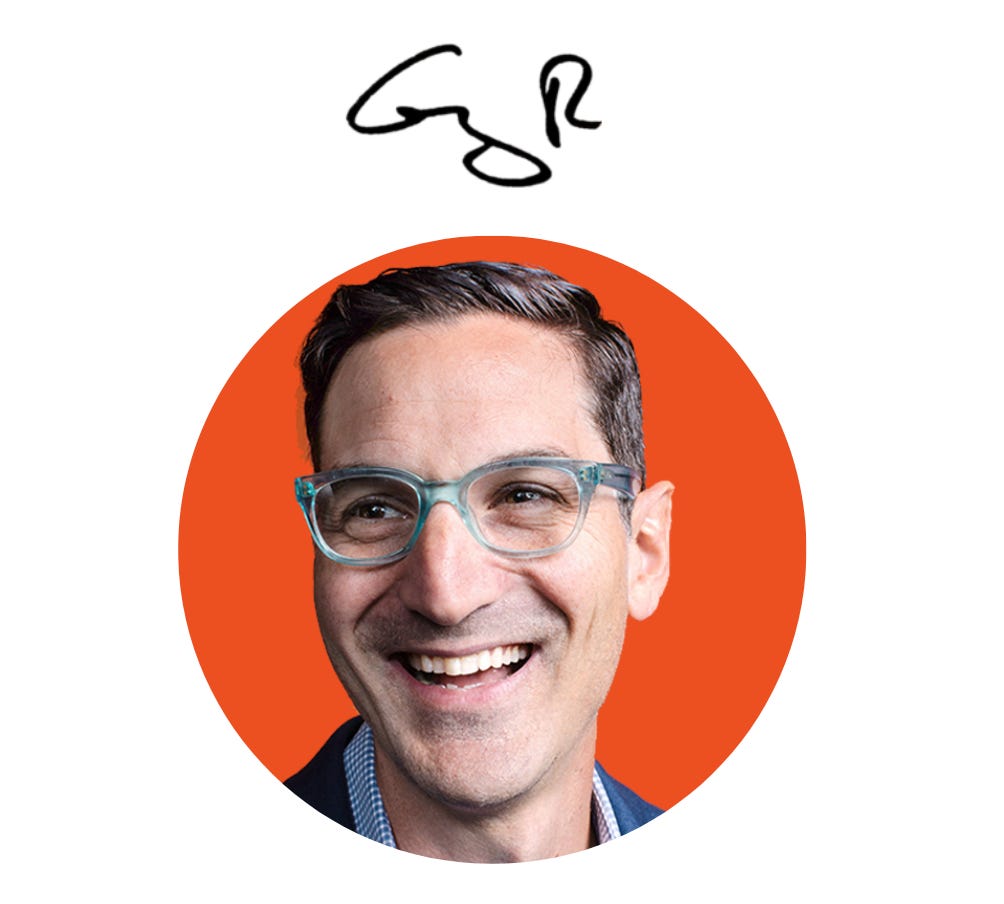

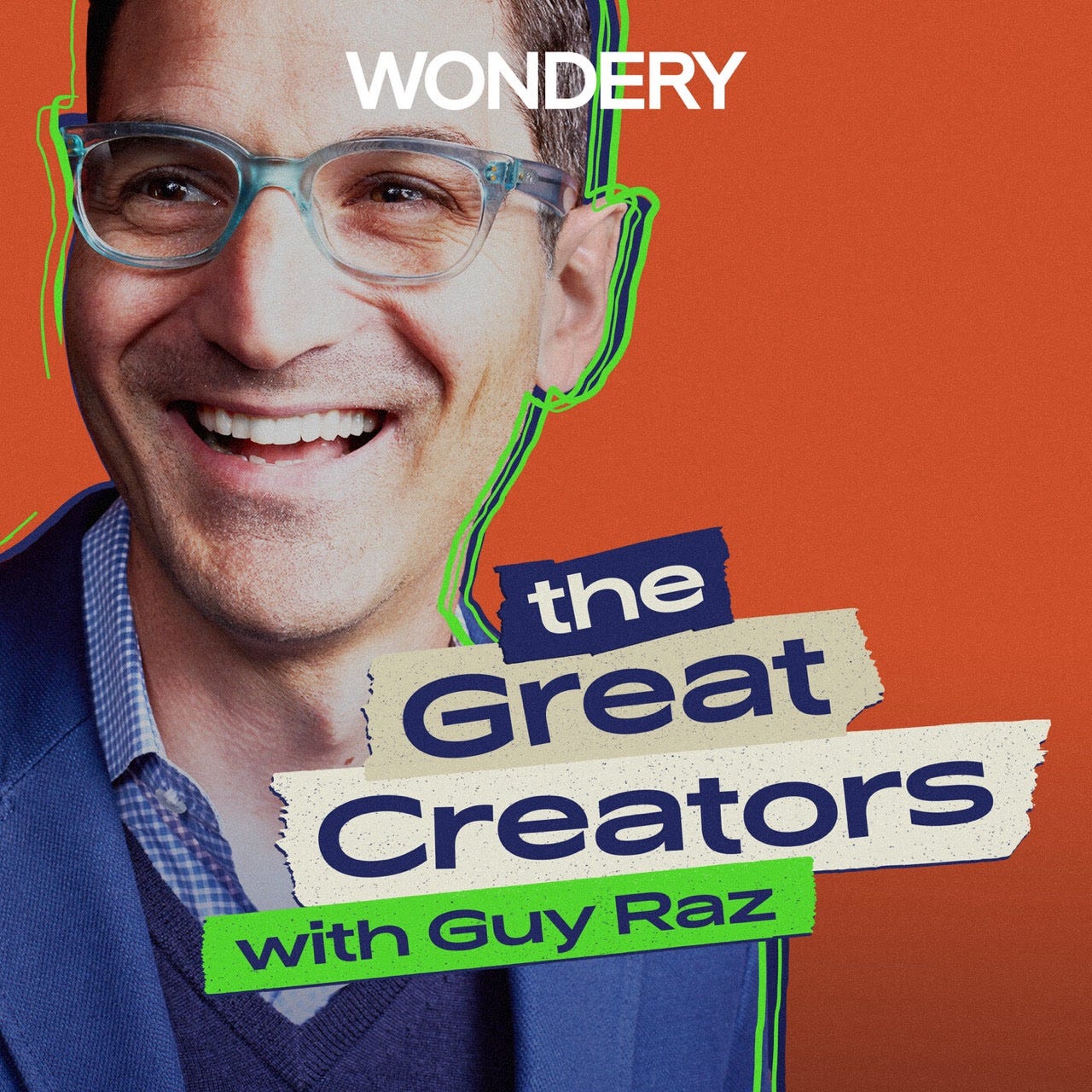
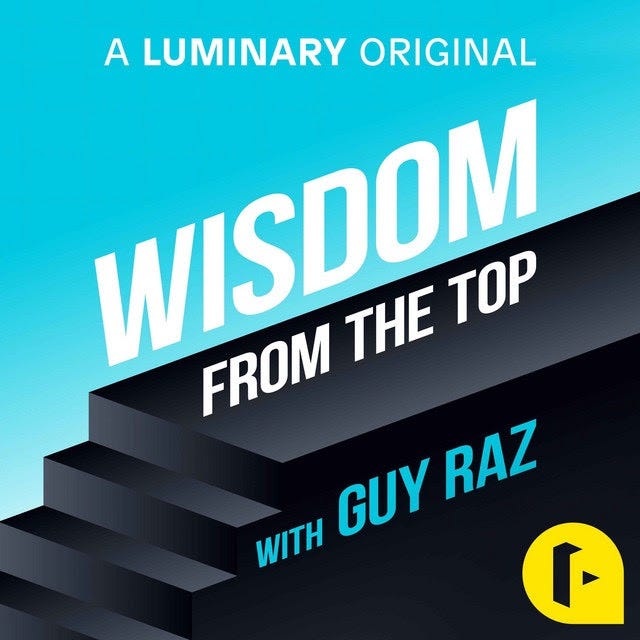



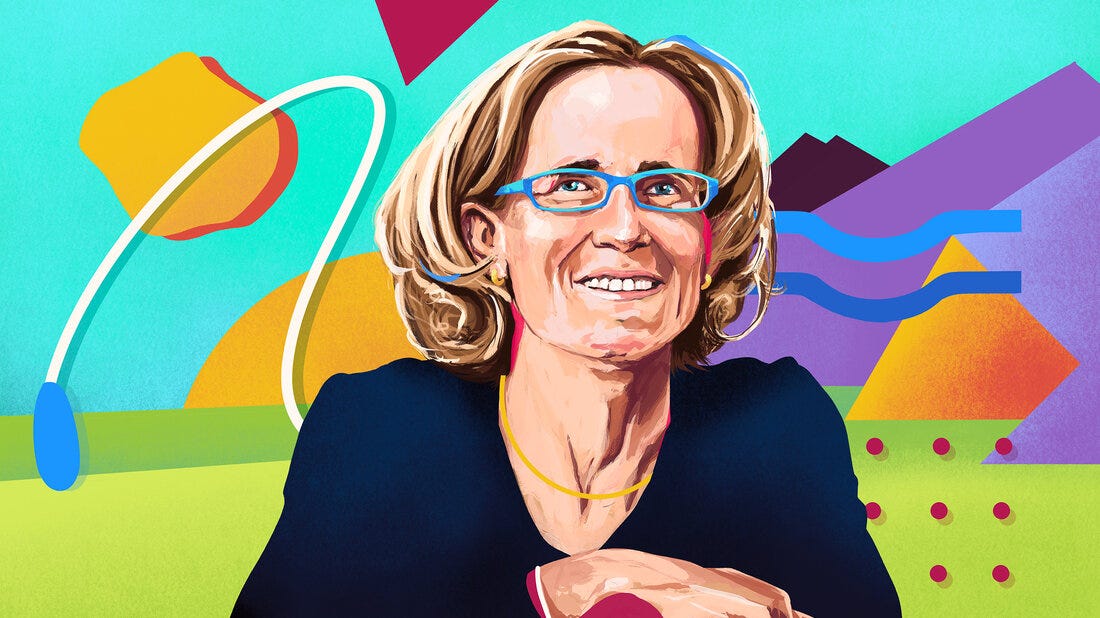
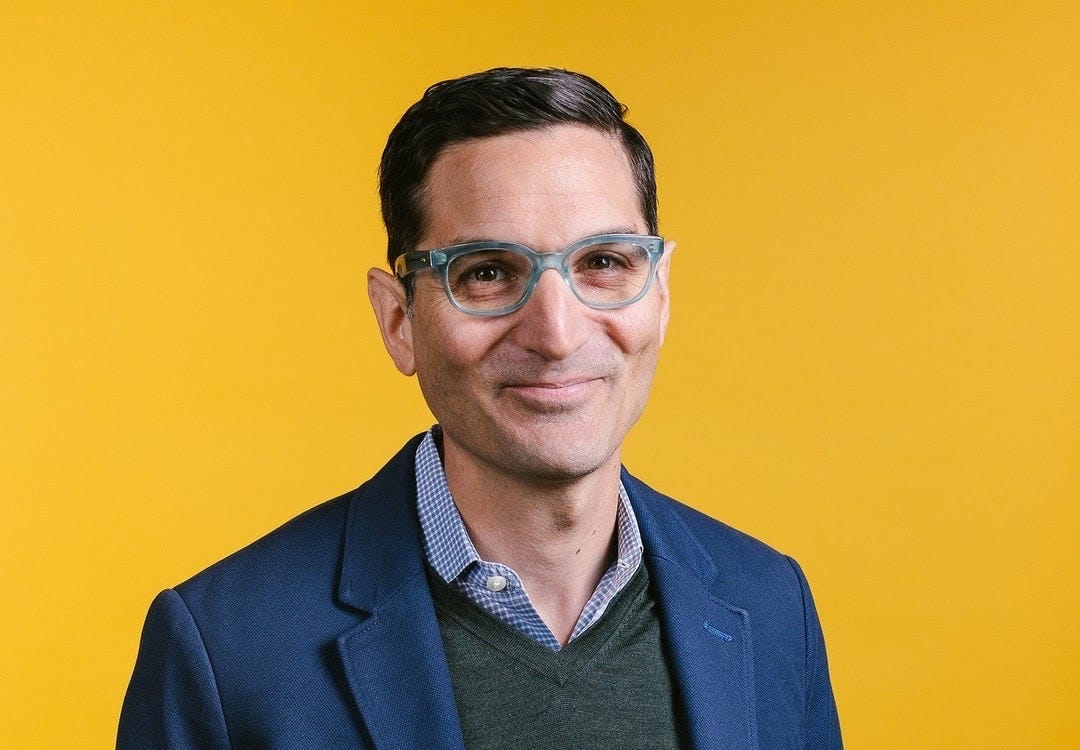
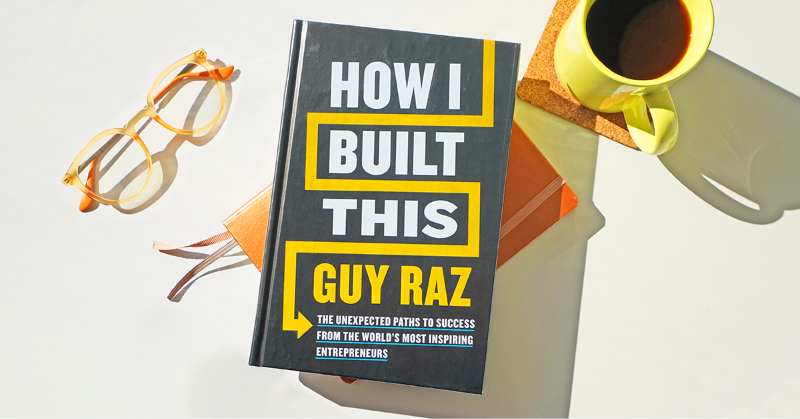

Whenever I feel like "everyone" is telling me not to try something new or take a risk, I like to remind myself not to pay attention to any data set of 1. SW squared + WC = MO is a great way of framing the constant push and pull between listening to others/following your gut.